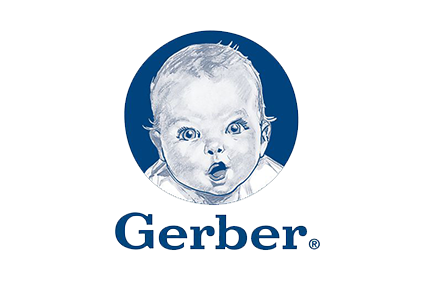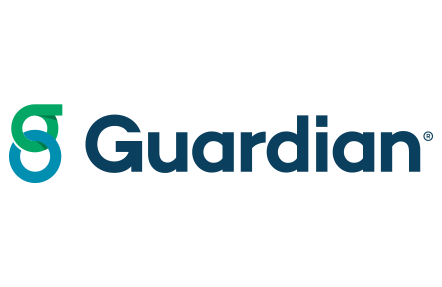Call Today! 888-234-8376
Best Whole Life Insurance Companies 2020
The name says it all: whole life. Unlike some types of life insurance policies– which offer limited coverage–whole life delivers lifetime life insurance coverage at fixed rates. As long as you pay premiums on time, whole life insurance can offer peace of mind.
If you are looking for an affordable policy to only cover a certain period of time, then term life insurance could be your best bet. Whole life insurance offers lifelong protection, but it is a bit more expensive—there's no such thing as cheap whole life insurance.
Whole life insurance: Who is it best for?
- People who want coverage that lasts their entire life: Unlike term life insurance, whole life is designed to provide life insurance coverage for your entire life.
- People looking for a policy with cash value: Your whole life policy will accumulate cash value through a fixed account. You can take out a loan from these funds (with interest).
- People who want their costs (premiums) to stay the same: With a whole life policy, you pay level premiums—your premiums stay consistent throughout the life of the policy.
Top 10 whole life insurance companies
Here is our list of the 10 best whole life companies and the features that make these companies appealing. If any of these companies stand out to you, you can click on the button to get whole life insurance quotes. But for the best whole life insurance rates, compare quotes from multiple companies using our tool or call an insurance agent.
Our list is in alphabetical order as there is no single best company; it all depends on your needs and situation.
Call today: 888-234-8376
- American National: Living benefits rider
- Assurity: Three-tiered whole life policies
- AXA Equitable: Enhanced cash growth potential
- Foresters: 100+ years of paying dividends
- Gerber: No medical exam; no questions asked
- Guardian: A variety of special policy riders
- MassMutual: Potential dividend earnings
- New York Life: Customizable policies
- SBLI: An array of whole life policy choices
- United of Omaha: Affordable whole life insurance
1. American National
In 2018, American National introduced its Signature Whole Life insurance policy, which offers a guaranteed lifetime death benefit, and, at no additional cost, a living benefits rider. If the policyholder is diagnosed with a terminal illness, serious injury, or debilitating medical condition, this rider enables them to tap into the face value of policies sooner. This option can help offset immediate medical costs that otherwise might be passed on to loved ones.
To learn more about this insurance company read our American National life insurance review.
2. Assurity
Assurity made our list because of its three-tiered Simplified Whole Life policies. None of the policies require a medical exam to qualify, and all three offer a “final expense” component. More importantly, each tier (Level Death Benefit, Graded Death Benefit, and Modified Death) provides a different amount of coverage (ranging from $5,000–$50,000) depending on what the policyholder can afford.
To learn more about this insurance company read our Assurity life insurance review.
3. AXA Equitable
AXA offers its Equitable Interest Sensitive Whole Life policy, which may appeal to consumers who view their insurance policy as an investment. This policy provides permanent coverage with fixed premiums—while guaranteeing 2% cash value growth YoY (provided you don’t borrow against the policy). Additional interest may accrue beyond the 2% minimum, which only enhances the life insurance policy’s cash value. Also, like American National, AXA offers a living benefits rider at no additional cost.
To learn more about this insurance company read our AXA Equitable life insurance review.
4. Foresters
Like other whole life policies, Foresters Advantage Plus Whole Life enables policyholders to accumulate cash reserves over the life of the insurance policy; however, Advantage Plus customers may also receive dividends based on Foresters’ annual profitability. Policyholders can apply dividends to premium payments, additional insurance coverage, or ask for cash distributions. Although dividends are never guaranteed, the company boasts a “long, proud history of paying dividends” since 1874.
To learn more about this insurance company read our Foresters life insurance review.
5. Gerber
Gerber made our list due to its Guaranteed Life whole life insurance policy, which offers coverage with no medical exam and no questions asked. However, coverage amounts range from only $5,000–$25,000, meaning the life insurance policy may not may not meet the needs of someone hoping to provide for a growing family. However, it may work for consumers seeking a reliable whole life insurance policy at an affordable price.
To learn more about this insurance company read our Gerber life insurance review.
6. Guardian
Guardian’s whole life insurance offers fixed-premium, permanent coverage. The policy accumulates cash value that you can borrow against for any reason. Like Foresters, Guardian offers dividends to policyholders based on company profits, and Guardian has consistently made dividend payments to policyholders dating back to 1868. Guardian also offers special riders that enable policyholders to access cash from their policies in the event of a terminal illness or disability.
To learn more about this insurance company read our Guardian life insurance review.
7. MassMutual
MassMutual is one of two companies included on this list that has earned A.M. Best’s highest “A++” rating, which reflects “superior financial stability” according the ranking agency. So, if your goal is to purchase whole life to serve as an asset, MassMutual is worthy of serious consideration. Like other companies mentioned on this list, MassMutual also offers performance-based dividends to policyholders, which it has regularly paid since the 19th century. Additionally, MassMutual requires no medical exam during its application process.
To learn more about this insurance company read our MassMutual life insurance review.
8. New York Life
In addition to earning A.M. Best’s A++ rating, which reflects solid long-term financial strength, New York Life is also the largest life insurance company operating in the US. As such, the company’s Custom Whole Life insurance policy may appeal to consumers looking for a provider with a solid financial track record. And, as the name Custom Whole Life suggests, the policy can be modified to meet a policyholder’s needs. For instance, you can agree to an aggressive premium schedule that enables you to pay off the life insurance policy sooner to maximize its cash value.
To learn more about this insurance company read our New York Life insurance review.
9. SBLI
SBLI offers a variety of whole life policies, including Continuous Payment, which helps reduce the costs of insurance premiums by spreading them out over a longer period. SBLI’s Limited Payment Whole Life allows you to make limited payments for 10 years, 15 years, 20 years or until you are age 65. You can also purchase a Single Premium Payment Whole Life, which offers lifetime coverage in exchange for a one-time payment (known as "paid-up" insurance). The company also offers Whole Life for Children policies in coverage amounts ranging from $10,000–$1,000,000. The premiums for the Whole Life for Children policies never increase, and they remains intact regardless of any health problems that may arise during the child’s life.
To learn more about this insurance company read our SBLI life insurance review.
10. United of Omaha
A subsidiary of Mutual of Omaha, United of Omaha offers its A Living Promise Whole Life policy, which requires no exam and comes in two varieties: Level and Graded, both of which are affordable when compared to other whole life plans. Level Benefit is for people between the ages 45–85 and offers coverage ranging from $2,000–$40,000. It also offers accelerated benefits if a terminal illness is diagnosed. Graded Benefit is a more affordable plan, available for those between 45 and 80; however, if an accidental death occurs in the first two years, beneficiaries will receive only the amount that was paid into the plan plus 10%.
To learn more about this insurance company read our United of Omaha life insurance review.
Is Whole Life Insurance Right for You?
As we said in our introduction, whole life insurance offers coverage that can last a lifetime, a guaranteed payout and fixed premiums. Whole life insurance can also serve as an investment, earning tax-deferred interest throughout the life of the insurance policy. Additionally, you can borrow against the cash value of the policy by taking out a life insurance loan. And, when you do die, in most cases beneficiaries receive their settlements in a tax free lump sum (minus any outstanding policy loans from the cash value).
But, despite these benefits, whole life insurance may not be for everyone. Whole life costs far more than a term life insurance policy. And, if you are looking at whole life as an investment, you should know there are more effective and affordable investment options out there than purchasing a whole life insurance policy.
If you want permanent life insurance that includes guaranteed cash value growth, along with guaranteed fixed premiums, and a guaranteed death benefit, but consider both the pros and the cons:
Lifetime coverage
Guaranteed fixed premiums and death benefit
Cash value growth
Tax-deferred compounding growth
Higher cost than term life
Potentially taxable dividends
Long-term commitment
Still Unsure about Whole Life Insurance?
Whole life can be an expensive investment. If you are seeking more low-cost life insurance, you may want to consider a term life insurance policy. Unlike whole life, a term life policy provides coverage for certain periods of time (most commonly 10–30 years). And although it lacks the investment appeal and cash value that whole life offers, the reduced premiums of a term policy may mean more cash in your pocket to apply to your own financial goals or investment strategy.
Bottom line: Whole life could be the right choice for you if you have want lifetime coverage and cash value accumulation.
Whole life insurance is great if you are looking for lifetime coverage and a policy that has a tax-deferred savings account through cash value. This policy also provides security in knowing that the payments will be consistent. However, it is important to note that whole life insurance is more expensive than both term life insurance and universal life insurance.








